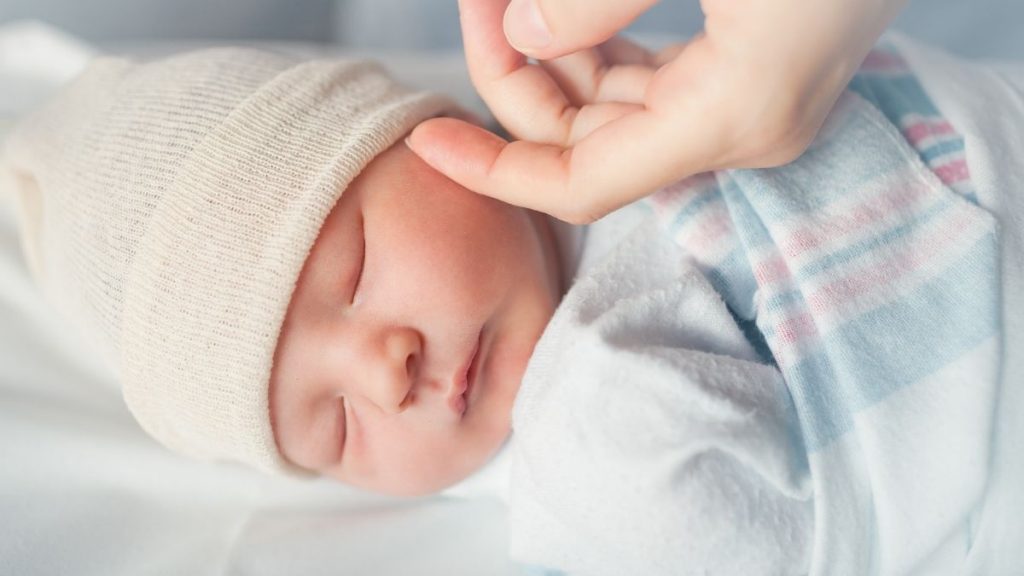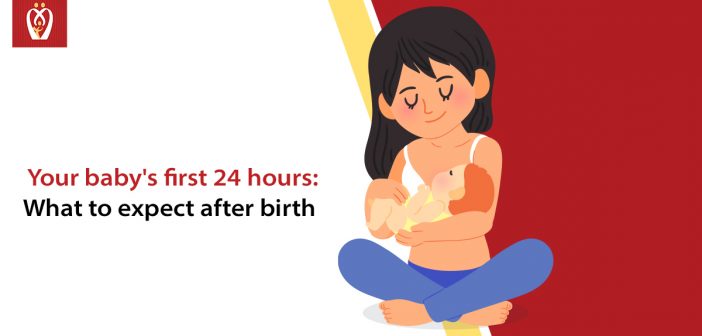The moment your baby is born, you probably will have an intimate relationship with your new born baby. This little person has been inside your body for nine months, kicking and rolling all over. You’ve even seen their heartbeat on a monitor during that time. However, the first few hours after giving birth to your new born baby are a step into the unknown for both of you. New born baby care is extremely crucial and you should be aware of it beforehand.
This new role will teach you a lot after your baby is born, and you and your child will be doing a lot of learning together in the weeks and months ahead. However, being aware of what to expect in the hours following delivery will better prepare you.

What Will You Be Feeling?
Depending on the type of birth you had, how you feel physically after the event may differ. While knowing new born baby care is important, your health is just as important. It’s an intense and emotional time for everyone involved. Your emotions may range from joy to exhaustion to overwhelm to emotional exhaustion, and this is perfectly normal.
You are likely to experience lochia or bleeding. As with a heavy period, you may pass large clots. If any of these are larger than a fifty pence piece, contact your doctor/midwife immediately. Your blood loss might continue for several weeks after the procedure is complete.
As your uterus returns to its pre-pregnancy size after your new born baby, you may experience after-birth pains. Pains like menstrual cramps or even labour pains are the types of after-birth pains you might have. Use a hot water bottle or seek pain relief from your midwife to alleviate these symptoms.
Following delivery, it is normal for your perineum to be slightly swollen for 24 to 48 hours. Rest and firm-fitting underwear are both recommended. The use of an ice pack or pain relievers may also be beneficial. Stitches will fall out in one to two weeks if you had any. Once you begin your pelvic floor exercises, blood flow will be increased to the area, which will speed up the healing process.
Within minutes of your baby being born, your breasts begin to produce colostrum. Breastfeeding immediately after giving birth stimulates milk production and helps you form a bond with your baby.
Your body will need physical assistance for about a week after a caesarean operation because you underwent major abdominal surgery. Within the first 24 hours after your new born baby is born, your dressing will be examined for signs of infection and you will be encouraged to move around.
You may be constipated after delivery, like many new mothers who have trouble going to the toilet. The process can be sped up by staying hydrated and eating plenty of fibre-rich foods.
The First 24 Hours with Your Newborn
Having your new born baby for the first time is an exhilarating (and emotional) experience as doctors and nurses examine and educate you on how to care for the infant. Preparation for new born baby care makes the experience more enjoyable and less stressful. Procedures vary from hospital to hospital, so it is better to know what all things might take place after the delivery.
Many health checks will be performed on your new born baby when they are born, including head-to-toe examinations and newborn spot tests (also known as heel prick tests) to screen them for a variety of serious health conditions. A Vitamin K injection will be given to them. Your baby will have a hearing test before you leave the hospital, during which the infant will wear headphones while an audiologist tracks his brain waves as they change in response to sound.
From the very first day of your baby’s life, you will begin to take care of your baby and breastfeed him or her every two to three hours if you so choose. If you need help changing your baby’s diaper, caring for his umbilical cord stump, bathing him/her, or any other new born baby care issues, your midwife/partner will be there to assist you.
Your infant is likely to pass urine and meconium within the first 24 hours after birth (newborn faeces). Even though it’s black and gooey first, your baby’s poop will look and feel different in a few days. Your baby will be weighed again before you are allowed to leave the hospital. If the infant has lost weight, that is completely normal.
During the first 24 hours, the baby might be quiet and sleepy or they may cry a lot because they are hungry, tired, or too hot or cold. While it can be frustrating not knowing why your baby is crying, with practise, you will pick up on the cues and be better equipped to soothe him/her.
The time you spend in the hospital depends on whether you gave birth naturally via vaginal delivery or via Caesarean section.
Once their well-being has been confirmed, you can go home with your baby.
To travel with your new baby, you’ll need a safe car seat that’s properly installed. As a new parent, the first few days after your baby’s birth can be a bit overwhelming for you and your partner. Remember to ask for help from a professional in case you need it. New born baby care is something very new for you. Make sure to be well prepared beforehand to keep yourself healthy.






